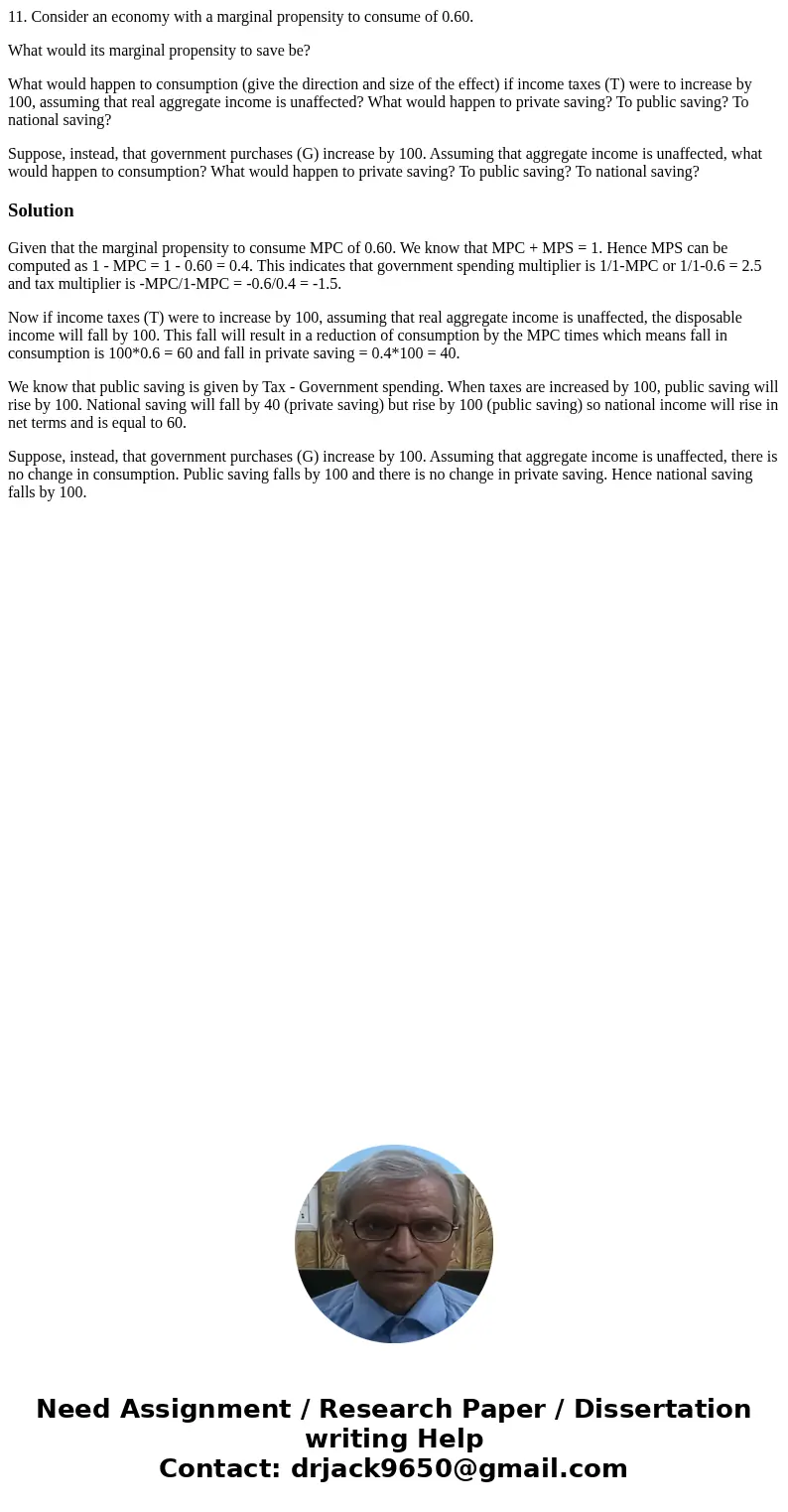11 Consider an economy with a marginal propensity to consume
11. Consider an economy with a marginal propensity to consume of 0.60.
What would its marginal propensity to save be?
What would happen to consumption (give the direction and size of the effect) if income taxes (T) were to increase by 100, assuming that real aggregate income is unaffected? What would happen to private saving? To public saving? To national saving?
Suppose, instead, that government purchases (G) increase by 100. Assuming that aggregate income is unaffected, what would happen to consumption? What would happen to private saving? To public saving? To national saving?
Solution
Given that the marginal propensity to consume MPC of 0.60. We know that MPC + MPS = 1. Hence MPS can be computed as 1 - MPC = 1 - 0.60 = 0.4. This indicates that government spending multiplier is 1/1-MPC or 1/1-0.6 = 2.5 and tax multiplier is -MPC/1-MPC = -0.6/0.4 = -1.5.
Now if income taxes (T) were to increase by 100, assuming that real aggregate income is unaffected, the disposable income will fall by 100. This fall will result in a reduction of consumption by the MPC times which means fall in consumption is 100*0.6 = 60 and fall in private saving = 0.4*100 = 40.
We know that public saving is given by Tax - Government spending. When taxes are increased by 100, public saving will rise by 100. National saving will fall by 40 (private saving) but rise by 100 (public saving) so national income will rise in net terms and is equal to 60.
Suppose, instead, that government purchases (G) increase by 100. Assuming that aggregate income is unaffected, there is no change in consumption. Public saving falls by 100 and there is no change in private saving. Hence national saving falls by 100.

 Homework Sourse
Homework Sourse